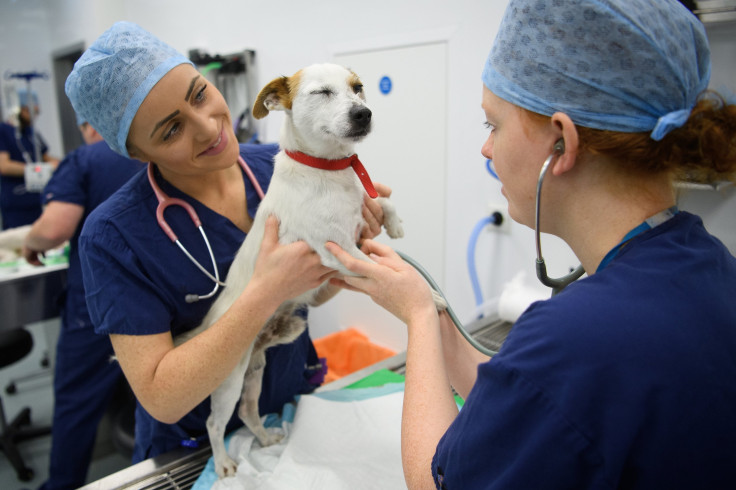Festive Threat: These Popular Holiday Staples Can Be Fatal For Pets
KEY POINTS
- Baked goods such as rolls and bread are quite dangerous for pets
- Chocolate treats usually have a lot of fat, which is not good for pets
- Grapes are significantly condemned by vets for pets
'Tis the season of joy. People will indulge in festive treats to celebrate the holidays. However, the same very treats can prove to be life-threatening for pets.
Here's a list of certain holiday staples that must be kept away from your pets' meals to ensure that the festival does not turn into a dampener this year. Furthermore, veterinarians explain some of the most common food-related medical emergencies they encounter in the animal ER during the holidays.
Fatty Foods
Anyone up for delicious turkey with gravy? This dish is probably the most popular one during the holidays.
"However, the fat contained in turkey skin – and the excess of fatty, greasy foods that can accompany it, such as gravy, butter, and bacon – don't go down well with cats and dogs. Pets that ingest an overload of fats may develop pancreatitis, an inflammation of the pancreas, the organ that helps break down fat, protein, and carbs," Leticia Fanucchi, Clinical Assistant Professor of Veterinary Clinical Sciences at Oklahoma State University, said, according to ScienceAlert.
Pets with pancreatitis will show symptoms such as vomiting and diarrhea.
Alliums
Allium species include leeks, garlic, onions, chives, and shallots and are common ingredients in holiday cooking. While these are healthy for people, they can be quite toxic for cats and dogs. According to the outlet, eating food containing alliums can lead to hemolytic anemia – a decreased number of red blood cells- in pets.
"The signs of hemolytic anemia, which normally appear a few days after ingestion, include vomiting, diarrhea, lethargy, and jaundice," Fanucchi stated.
Yeast-derived products
Baked goods such as rolls and bread made by infusing yeast are quite dangerous for pets and should not be offered to them.
"The yeast in these foods can ferment in a pet's warm stomach and produce toxic levels of ethanol. In pets, ethanol toxicity may lead to metabolic acidosis, which can cause a sudden drop in blood glucose, respiratory depression, seizures, and cardiac arrest," Fanucchi explained.
Pets can also undergo ethanol toxicity by ingesting alcoholic drinks such as beers and cocktails, as per the outlet.
Chocolates
Chocolates - the ultimate holiday treat - can be poison for cats and dogs. Its ingestion can lead to "chocolate intoxication, a condition in which methylxanthines accumulate in the body and make them sick," Fanucchi stated.
Symptoms of chocolate intoxication include tremors, increased heart rate, vomiting, diarrhea, restlessness, and seizures. In most cases of chocolate intoxication, it is found that it is the children that treat their pets with candies without the knowledge of adults.
Additionally, chocolate treats usually have a lot of fat, which is not too great for pets either.
Grapes
Grapes are a fruit condemned by every vet, noting that they can be toxic for pets when consumed both fresh and/or dried into raisins.
"If eaten, the tartaric acid in grapes or raisins may cause acute kidney disease. Common signs of acute kidney disease in dogs are vomiting, intermittent diarrhea, and increased intake of water," Fanucchi said.
Artificial Sweeteners
Xylitol is a common artificial sweetener used in sugar-free products. However, it's a fast-acting poison in pets.
"Ingesting even the smallest amount of xylitol can cause a pet's liver to rapidly release insulin, causing hypoglycemia – unusually low blood glucose levels. Within 30 minutes, the pet will experience symptoms such as vomiting, lethargy, and seizures, and can lose coordination of its limbs – called ataxia," Fanucchi added.
In case your pet accidentally ingests one of these foods, contact a veterinary hospital or ER right away.

© Copyright IBTimes 2025. All rights reserved.





















